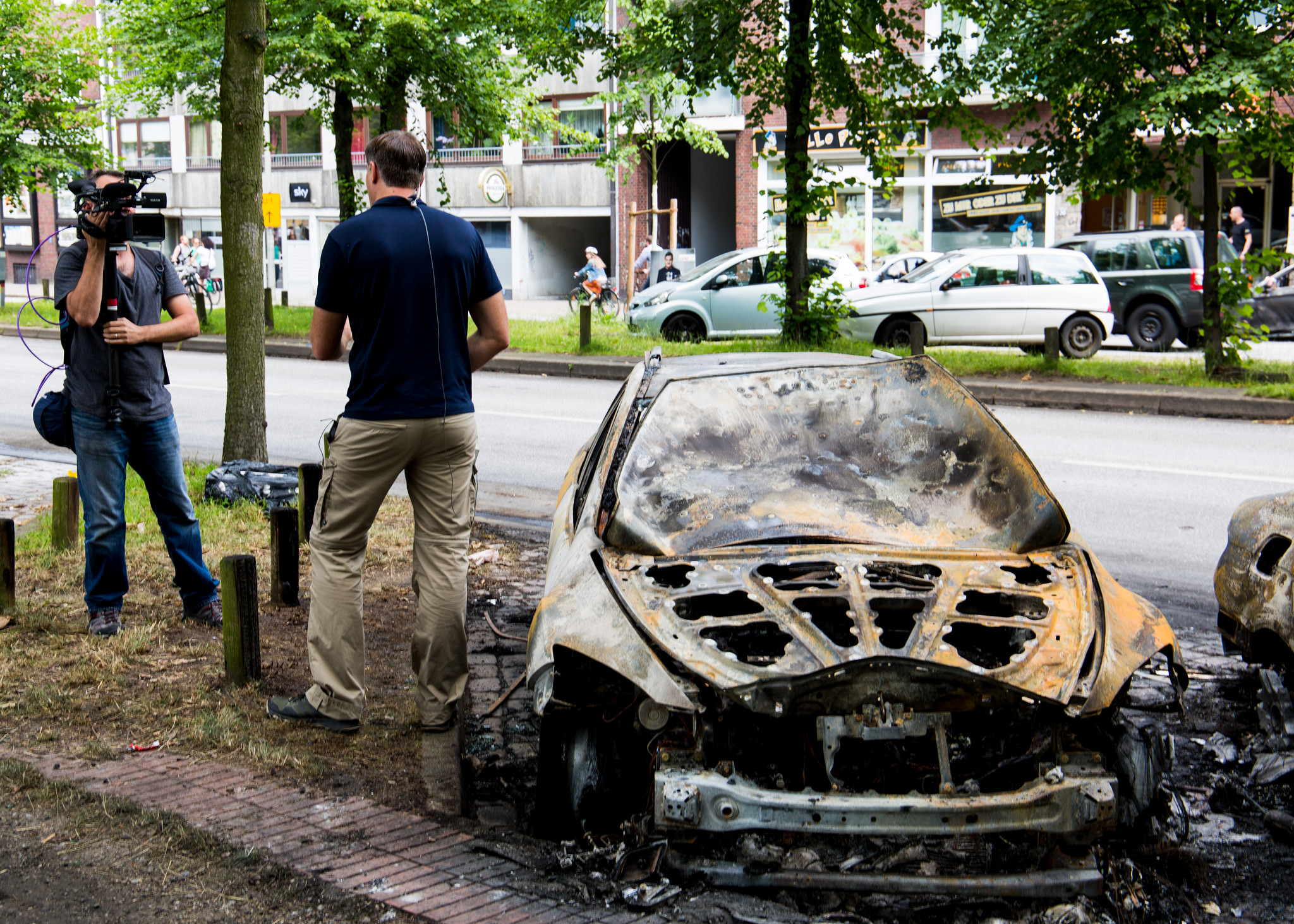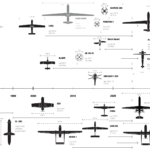The Hamburg police use the EU arrest warrant and the European Investigation Order to prosecute activists after the G20 summit. The Federal Criminal Police Office assumes the function of a central office.
After the G20 summit, the Hamburg special commission “Black Block” travelled several times to neighbouring countries for an “exchange of knowledge”. This was announced by the Hamburg Senate at the request of Christiane Schneider, a member of parliament. The Senate did not write which measures and visited authorities were involved. Two weeks ago, the Hamburg police announced the dissolution of the special commission. All criminal investigations into the G20 summit are now being continued by an investigation team based at the Political Department of the Criminal Police Office (LKA) in Hamburg.
So far it was only known that the Soko “Black Block” was abroad for the execution of German judicial orders. On 29 May the officers had ordered searches of seven persons in France, Italy, Spain and Switzerland in order to secure possible evidence there. Nine objects were searched, confiscating computers and laptops, mobile phones, storage media and clothing. Two of the suspects were initially unknown and were identified by a public searchpublishing their photos (“Öffentlichkeitsfahndung”). The Soko “Black Block” had also sent the images and descriptions of the suspects to foreign authorities for identification. In September, the police was searching for 109 people abroad.
Supposedly also interrogation in France
The searches of seven male persons aged between 22 and 32 years were carried out in the “Elbchaussee” crime complex. Around 200 people had been passing through Hamburg’s noble quarter at the G20 and had damaged cars and shop windows. Meanwhile, the police have identified several suspects in other countries and carried out house searches. Three foreign activists are accused of breach of the peace in a particularly serious case and are also said to have attacked police officers. Four of the seven persons persecuted abroad are accused by the police of arson and breach of the peace in a particularly serious case. One of these accused persons is under investigation on suspicion of a dangerous assault and a violation of the weapons law.
The police measures abroad were not officially carried out by the Soko “Black Block”, but by the locally responsible police stations. However, some of the victims were told that they were under the responsibility of the German police.
French activists demonstrating in the small village of Bure, southwest of Nancy, against Europe’s largest nuclear waste repository CIGEO also report the presence of German police at demonstrations. This could serve to locate unknown suspects. German police officers were also involved in at least one interrogation in France and questioned the person concerned. In France there is the possibility of a “free interrogation” or interrogation as a “free suspect”. It differs from an arrest for interrogation in which the persons concerned are not allowed to leave the interrogation. When asked, the Hamburg Senate does not want to explain the status of the interrogation. No legal counsel or sworn interpreters were provided at the hearing.
Cooperation with EU agencies in The Hague
In order to enforce the decisions in Spain and Switzerland, the Hamburg Public Prosecutor’s Office has made assistance requests under the European Convention on Mutual Assistance in Criminal Matters. In the case of Italy and France, the authorities took advantage of the recent European Investigation Order. Requests for the legal assistance in the three EU Member States were sent via the Eurojust judicial cooperation agency, which, like Europol, has its headquarters in The Hague. Switzerland does not participate in Eurojust and the European Investigation Order, so the Hamburg LKA carried out the searches on the basis of the German-Swiss police agreement.
A European arrest warrant has also been issued against Loïc Schneider, a suspect from France. The French judicial authorities are therefore obliged to deliver the warrant within 60 days. The French citizen is currently waiting for an appeal which will be brought before a court in Paris on another matter. In the meantime, however, he has been extradited and is in the Holstenglacis detention centre in Hamburg.
The European Investigation Order also makes it possible to order mandatory surveillance measures in other EU Member States. In the G20 context, for example, it is conceivable that German police authorities have ordered cell site analysis or the sending of silent SMS messages to locate mobile phones. The directive also permits the tapping of telephones, covert investigations and observations. The Hamburg Senate does not want to state whether the LKA will make use of this option in order to prevent “conclusions being drawn about criminal tactics”.
BKA travels to Rome and Genoa
During the raids in the four neighbouring countries, apart from the LKA Hamburg, either the federal police (in France), the police of North Rhine-Westphalia and the Federal Criminal Police Office (in Rome and Genoa) or the police of Lower Saxony (in Madrid) were present. Only the search in Switzerland was carried out only by the LKA Hamburg. An explanation for this is not known, but it is possible that the defendants already appear in other investigation proceedings in which other state criminal investigation offices are involved. According to the Senate, the Federal Police also conduct “independent investigations” into criminal offences at the G20 summit which are within its jurisdiction.
The function of the BKA in the G20 investigations is described by the German Ministry of the Interior as “support”. Last year, the Ministry had already announced that “personal data on left-wing activists known to the police had been exchanged with foreign countries”. Among other things, this exchange took place via the informal “Police Working Group on Terrorism” (PWGT), in which all EU member states are organised. Inquiries about suspects were also made in Iceland, Canada, Switzerland and the USA.
In the G20 investigations, the BKA also assumed the function of a central office. For example, requests from national police forces were passed on to foreign police authorities and Europol in order to identify the persons on the basis of photographs. However, a personal presence during the searches is not necessary for such a request for information, which is why the task of the BKA officials in Rome and Genoa remains unclear. On request, the Hamburg Senate now declares that the BKA has also sent liaison officers for the measures in Italy. In this way, the Italian authorities can be informed of findings found by the BKA in German databases.
Image: G20 Hamburg – the day after (Rasande Tyskar, CC BY-NC 2.0)




